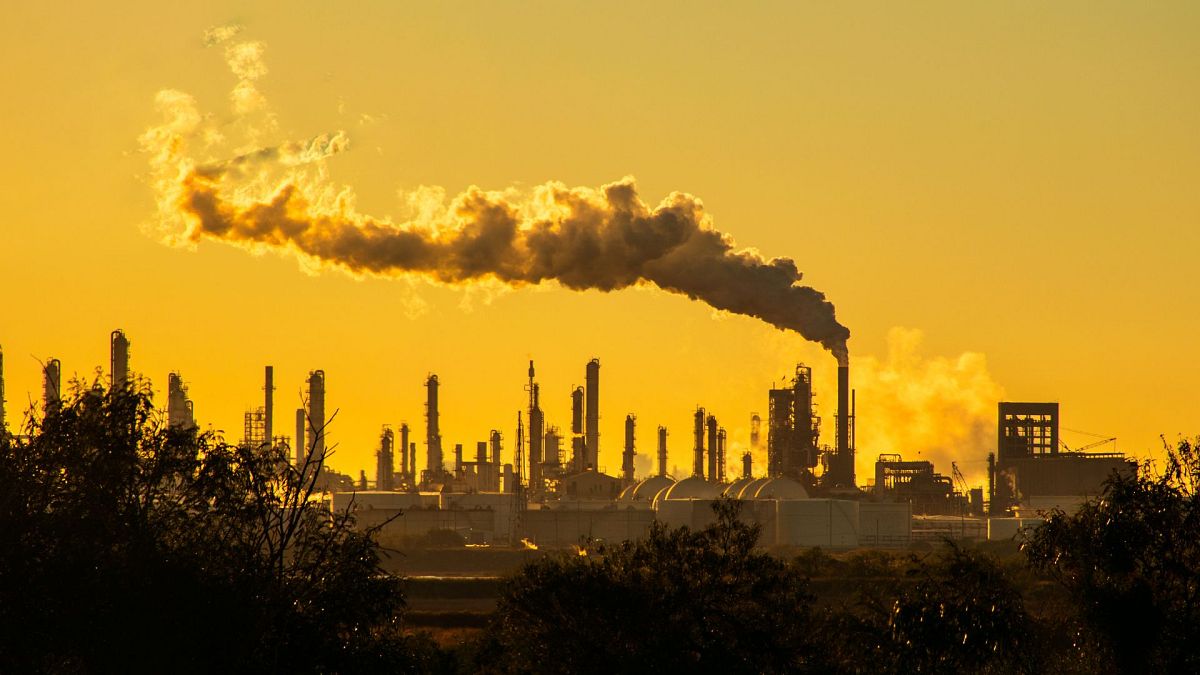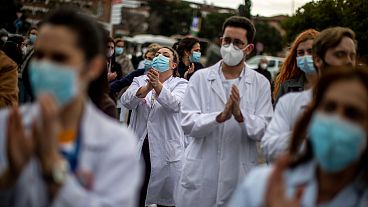In its eighth report, the Lancet Countdown project has made some dire projections for human health should we fail to stem the climate crisis.
The lives of current and future generations hang in the balance, according to the authors of a new report into the consequences of inaction on limiting temperature increases.
Scientists have long warned of the catastrophe facing the climate should we fail to keep temperature increases to no more than 1.5 C above pre-industrial levels.
In its eighth report, the Lancet Countdown project warns the global population is facing a nearly five-fold increase in heat-related deaths by 2050, while climate inaction is already costing lives and well-being today.
They report that last year, people were exposed to 86 days of “health-threatening high temperatures” on average, with 60 per cent of those more likely to occur due to human-caused climate change.
The Lancet Countdown: Tracking Progress on Health and Climate Change project is an international research collaboration monitoring and reporting on the relationship between health and climate. It’s part of the Lancet Group, which publishes journals.
The authors of the report have called out the “negligence” of governments, companies, banks, and other institutions that continue to invest in fossil fuels. They insist on the need for quick mitigating actions to “tackle the root causes of climate change”.
“Our health stocktake reveals that the growing hazards of climate change are costing lives and livelihoods worldwide today,” said Dr Marina Romanello, Executive Director of the Lancet Countdown at University College London.
“Projections of a 2C hotter world reveal a dangerous future, and are a grim reminder that the pace and scale of mitigation efforts seen so far have been woefully inadequate to safeguard people's health and safety”.
She added that with “1,337 tonnes of carbon dioxide still emitted every second,” we need to speed up the rate of mitigating action to avoid catastrophe for our health.
“There is an enormous human cost to inaction, and we can’t afford this level of disengagement – we are paying in lives. Every moment we delay makes the path to a liveable future more difficult and adaptation increasingly costly and challenging”.
How a warming world could affect our health
A recent study from the University of Exeter shows the world is on track for 2.7 C warming above pre-industrial levels, which could put two billion people at risk of life-threatening heat by 2100.
The Lancet’s report takes data and research from leading experts from 52 research institutions and UN agencies around the world including the World Health Organization (WHO) and the World Meteorological Organization (WMO).
“There is still room for hope,” said Dr Romanello.
“The health focus at COP28 [the UN’s upcoming climate summit in Dubai] is the opportunity of our lifetime to secure commitments and action. If climate negotiations drive an equitable and rapid phase-out of fossil fuels, accelerate mitigation, and support adaptation efforts for health, the ambitions of the Paris Agreement to limit global heating to 1.5C are still achievable, and a prosperous healthy future lies within reach”.
The authors point to how 2023 has seen the world’s hottest global temperatures in more than 100,000 years, according to available records.
Heat-related deaths in people aged over 65 increased by 85 per cent in the period from 2013 to 2022 compared to 1991-2000.
This increase based solely on changing demographics was expected to be around 38 per cent.
Experts also warn that the warming climate and increasing destructiveness of extreme weather are jeopardising water and food security.
“We’re facing a crisis on top of a crisis,” said Dr Georgiana Gordon-Strachan, Director of the Lancet Countdown Regional Centre for Small Island Developing States.
“People living in poorer countries, who are often least responsible for greenhouse gas emissions, are bearing the brunt of the health impacts, but are least able to access funding and technical capacity to adapt to the deadly storms, rising seas and crop-withering droughts worsened by global heating”.
The report makes grim predictions about what could lie ahead for our health in a warmed world.
They say under the current progression, annual heat-related deaths could increase by 370 per cent by 2050, with heat exposure expected to increase the hours of potential labour lost globally by 50 per cent.
Heatwaves could also lead to around 525 million more people experiencing moderate to severe food insecurity by 2041-2060. They also say life-threatening infectious diseases could rise, with the transmission potential for dengue fever increasing by around 36 per cent.
“In the face of such dire projections, adaptation alone cannot keep up with the impacts of climate change, and the costs are rapidly becoming unsurmountable”, says Professor Stella Hartinger, Director of the Lancet Countdown Regional Centre for Latin America.
“We must go beyond treating the health symptoms of climate change to focus on primary prevention”.



